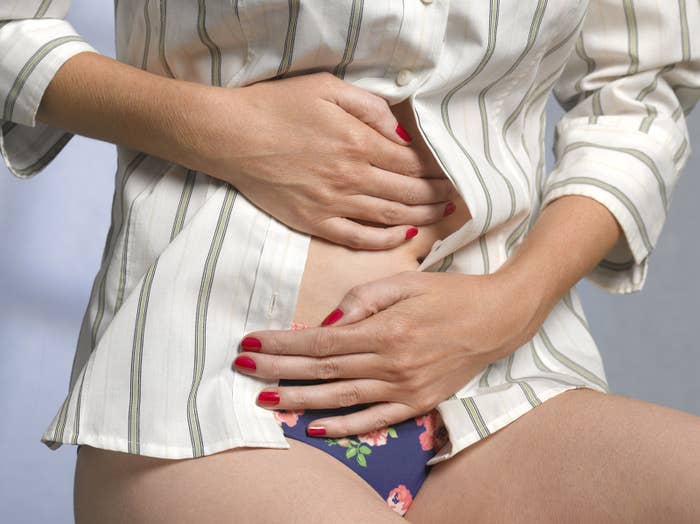
We hope you love the products we recommend! All of them were independently selected by our editors. Just so you know, BuzzFeed may collect a share of sales or other compensation from the links on this page if you decide to shop from them. Oh, and FYI — prices are accurate and items in stock as of time of publication.
As someone who has suffered from digestive issues for as long as I can remember, I was drawn into #guttok very early on in my TikTok journey.
At first, it was comforting. They were telling me that hot girls have irritable bowel syndrome. I felt less alone — like, for the first time, perhaps my frequent bloating and irregular bowel movements actually made me hotter.
Then my “For You” page was overwhelmed with suggestions about what foods I should eat and supplements I should take to magically transform my gut. They implied I would be glowing and stomach-trouble-free if I just dropped hundreds of dollars on probiotics, L-glutamine, digestive enzymes, and various other oils and powders to sprinkle into my green smoothies.
As a constipated Carrie Bradshaw might posit, I couldn’t help but wonder — what gut health supplements and products, if any, are actually effective enough to warrant the investment?
To find out if any of these might actually be helpful, I turned to medical experts, like Dr. Kyle Staller, a gastroenterologist at Massachusetts General Hospital who specializes in disorders of gastrointestinal motility.
“I think, for all these, the demand for the magic answer really outstrips the science,” Staller said. “Most of these things are not terribly harmful except to your wallet.”
Diarrhea, constipation, and other gut issues are common problems, so solutions are big business. A global study of more than 73,000 people published in 2021 in the journal Gastroenterology found that 20% to 40% of people who filled out either a household or online survey had a functional gastrointestinal disorder such as IBS. While these conditions generally aren’t life-threatening, they can seriously impact your quality of life, Staller said. However, he recommended seeing a doctor for potential remedies, rather than relying on trendy quick fixes.
Here are products that the experts we talked to actually recommend — but keep in mind that not all of these products are appropriate for everyone and some shouldn’t be used in the long term if they aren’t helping.
Probiotics
This is one you’ve probably heard of, and think of as universally positive — everyone knows probiotics, or healthy microorganisms, are good for you, right? Not so fast. While doctors do sometimes recommend probiotics, they don’t recommend them for everyone, in every circumstance, forever.
Just like vitamins, they can cost a bundle of money and do absolutely nothing for some people or in certain circumstances.
“Probiotics have been promised to cure everything,” said Dr. Fola May, a gastroenterologist and assistant professor at UCLA. “From irritable bowel syndrome to constipation to abdominal pains, ingestion, to lactose intolerance, I've seen every reason in the book. Even allergies. But the reality is the data just don't support that they universally help you.”
Probiotics are live microorganisms intended to improve health by adding more “good” bacteria or yeasts to your teeming microbiome — the trillions of organisms living in your gut that help everything from food digestion to immune regulation.
The thing is the probiotics industry is largely unregulated and there is no consistent proof of clinical efficacy, according to the American Gastroenterological Association’s guidelines on probiotics despite the increased interest and promise in probiotics as an effective way to beneficially alter the gut microbiome.
May and Staller agreed that while taking probiotics likely won’t cause you any harm, they generally do not recommend them as a course of action because they can be expensive and there’s a lack of conclusive evidence they always work. (In general, studies have had mixed results and looked at numerous different strains.)
There has been some stronger proof that probiotics can be helpful for those with antibiotic-associated diarrhea, traveler’s diarrhea, or C. diff (a potentially life-threatening germ that causes severe diarrhea and inflammation of the colon), according to Nancee Jaffe, a gastrointestinal dietitian at UCLA. One of the most common conditions that probiotics are thought to help is IBS, although again, the evidence is mixed.
If you’d like to take one, Jaffe advises trying it for about two months.
If you haven’t noticed any improvement after that amount of time, you might stop taking them since probiotics don’t always have the right strains to be therapeutic and you don’t want to be taking any unnecessary or ineffective supplement.
Jaffe also suggested opting for prebiotic and probiotic-rich foods whenever possible. She said that fermented foods like kimchi, miso, and sauerkraut have been shown to cause a reduction in inflammatory markers. Kefirs, kombuchas, and yogurts also fall into that category.
“Our bodies really like moderation, so we’re really meant to be doing the middle amount of most things,” Jaffe said. “Just having it in typical portions as part of a healthy diet is the goal.”
A probiotic experts recommend: Align Probiotic
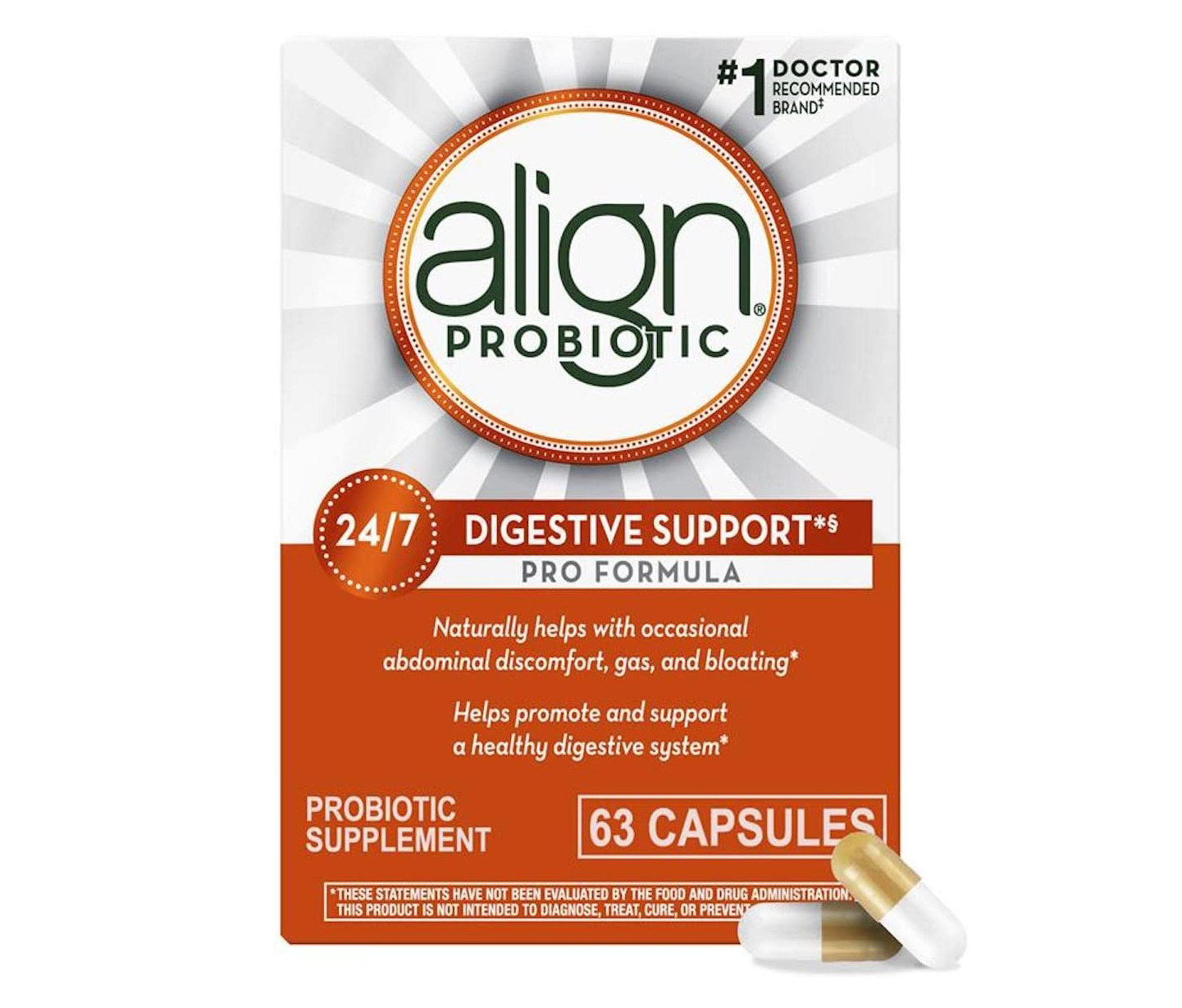
Promising Review: “I was hospitalized this past December for a severe case of cellulitis (infection) in my left leg. I spent 2-days receiving a battery of antibiotics, and went home on oral antibiotics. As a result, my gut flora was shot! and I began having severe constipation, bloating and stomach cramps which were debilitating. I began taking Align and on day 2, I felt so much better, about 90%. I’m now at 200%, no longer lethargic and not dealing with the many issues I had. I don’t care what it costs, I will continue to use Align for gut health for the rest of my life!!” —Yvette
You can buy Align Probiotic from Amazon for around $47.
Peppermint oil
Something that many of May’s patients with IBS have had success using is purified peppermint oil capsules.
Jaffe also mentioned that there is good literature to back up the use of peppermint oil capsules for those with lots of bloating and abdominal discomfort. She said that it can not only absorb gas bubbles, but also tell the nerves in the gut to calm down, which can help patients quite a bit since the sensation of bloating often comes from the nerves.
A peppermint oil capsule experts recommend: IBgard Daily Gut Health Support
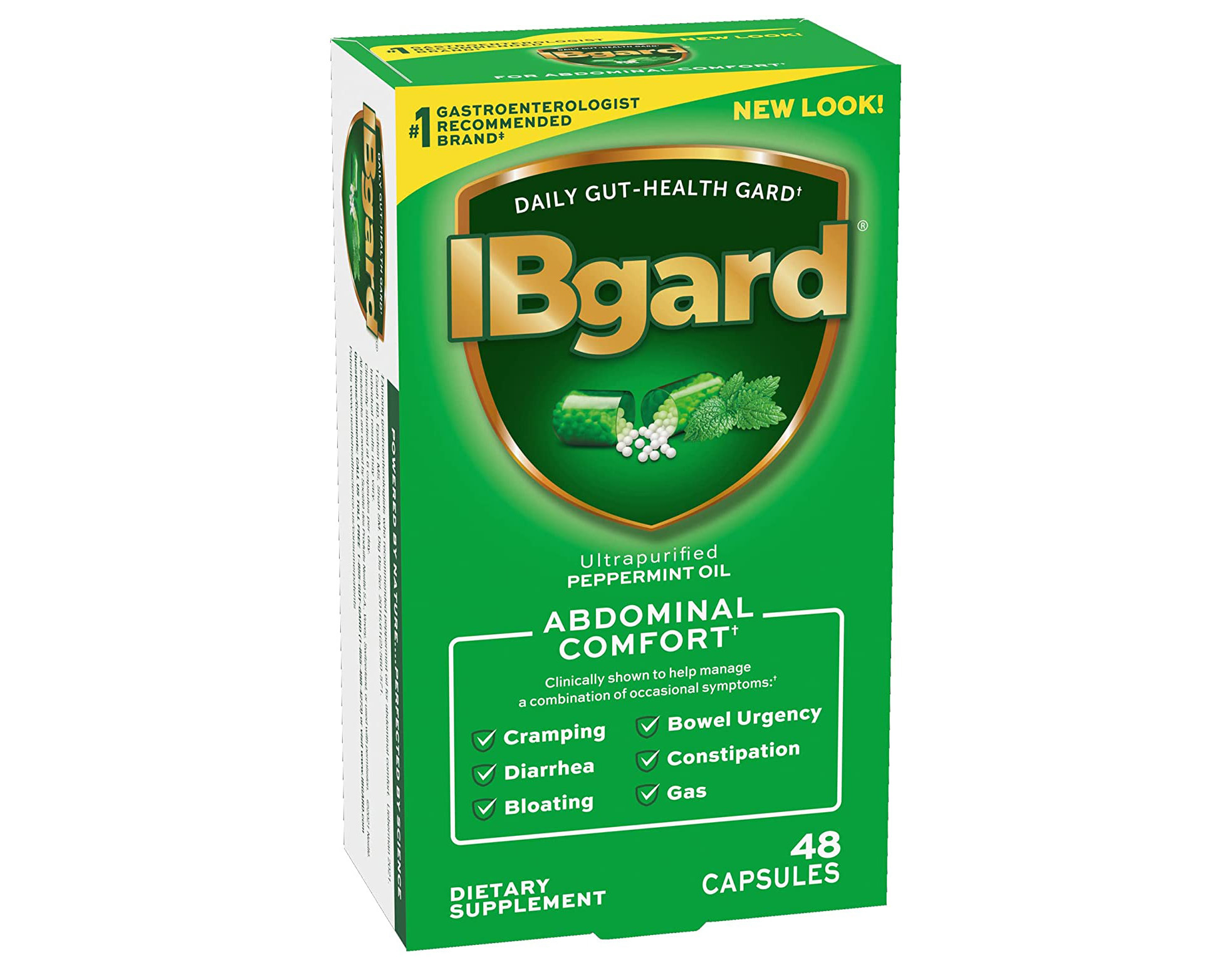
Promising review: “I take this with fiber 30 minutes before eating anything, it works!!!!! I no longer stress out about finding a bathroom 2-3 hours after I have a meal. My quality of life has improved immensely.” —Thomas R. Moore Jr.
You can buy IBgard Daily Gut Health Support from Amazon for around $25.
Digestive enzymes
The body naturally makes many different kinds of digestive enzymes that each have their own role in breaking down foods. Since they’re produced everywhere along the gastrointestinal tract, including saliva, the pancreas, gallbladder, and liver, most people will not need to supplement them for their digestive health.
If you have a disorder that affects your saliva, gallbladder, liver function, or a condition called pancreatic insufficiency, that’s when May said it could be beneficial to replace some of those digestive enzymes. For the most part, if you don’t have one of those conditions, taking digestive enzymes is not something that’s typically suggested.
Again, Staller said he wouldn’t necessarily dissuade someone from taking them if they felt it was helping, but he also explained that you would need to wipe out almost 90% of your pancreas before you’d be missing any digestive enzymes and need to think about replacing them. For that reason, the average person with stomach problems is not going to benefit from digestive enzymes.
Jaffe reiterated that as with any supplement, she is very specific about which kind of enzymes she’ll suggest to patients. “We want to make sure we're giving not only ones that have evidence to back up their use, but are also at what we call a therapeutic dose, which means the dose that was used in the literature that actually helped people.”
For those who have trouble breaking down a category of sugars found in soy and beans called galactooligosaccharides, which can cause immense gas and bloating, Jaffe specifically recommends 300 or more units of the digestive enzyme alpha-galactosidase. Though it may not be the most trendy gut product on the market, Beano, which has been sold for decades, meets that criteria.
A digestive enzyme experts recommend: Beano Ultra 800
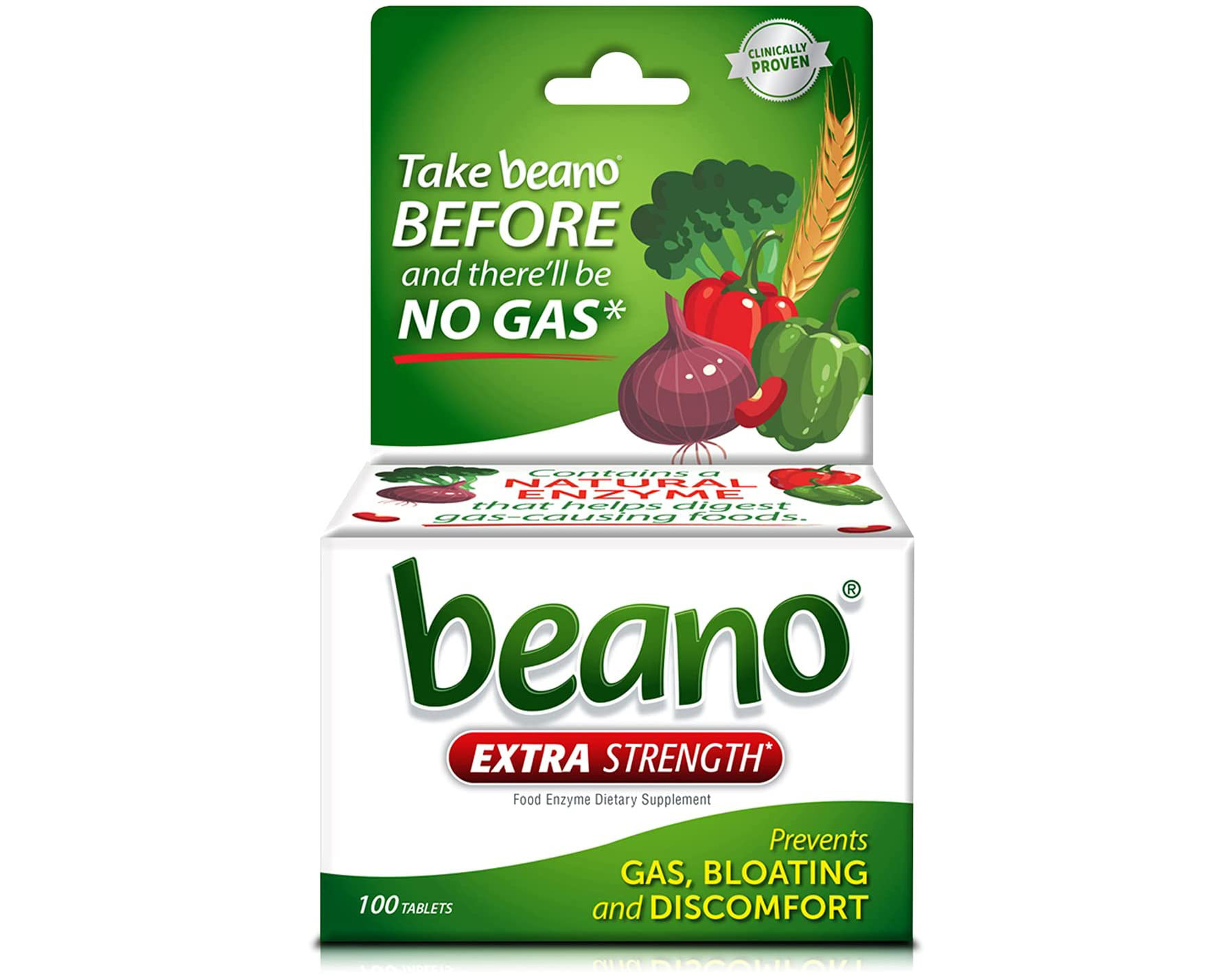
Promising review: “I can’t live without it. I have a really irritable bowel and can’t digest cruciferous vegetables without taking it. It really helps.” —avid shopper
You can buy Beano Ultra 800 from Amazon for around $10.
L-glutamine
This was the only type of supplement I saw on TikTok that I’d never heard of before, and it seemed to be everywhere. May explained that glutamine is actually an amino acid that’s important for muscle use and expenditure, which is why athletes will often take it for quick recovery. However, there’s no strong scientific data to support that use so it's not generally recommended, May said.
As it relates to gut health, Jaffe said that L-glutamine is actually only proven to work as a temporary remedy to heal the gut after a serious infection or antibiotic treatment has caused symptoms that you want to reverse.
In one randomized controlled trial published in 2019 in the journal Gut, people with diarrhea-predominant IBS after an infection took 15 grams of pure L-glutamine a day for eight weeks or a placebo. About 80% of the people taking L-glutamine had an improvement in symptoms compared with just 6% of people taking a placebo.
“It’s like a cast for the gut,” Jaffe said. “It’s stabilizing so that the gut can heal itself. You take it for a couple of months and then wean yourself off because hopefully the gut has healed and it can do the work by itself. We don’t have enough literature to know if it’s safe to take forever.”
Though our experts did not recommend a particular brand and we’d recommend consulting your doctor before starting any supplement regime, this option is NSF certified and highly reviewed.
Onnit Glutamine
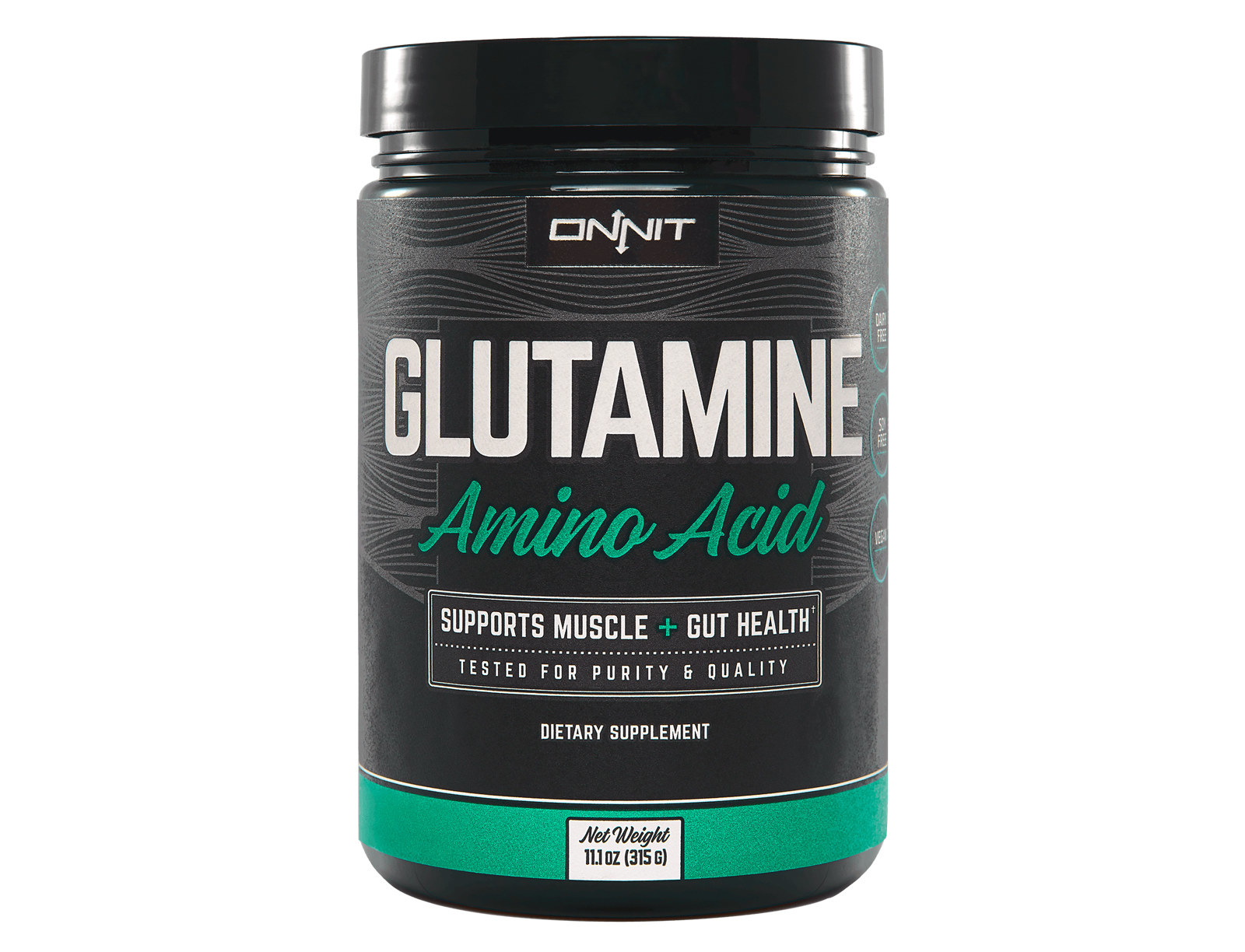
Promising Review: “Pretty much anything Onnit does is top notch. This is flavorless, dissolves quickly, and works awesome!” —D’Anna Watson
You can buy Onnit Glutamine from Amazon for around $28.
Fiber
Experts agree that the best course of action is to look at your diet if you’re experiencing digestive issues. If you can figure out if you have some sort of deficiency or sensitivity you can potentially relieve your symptoms by changing your diet. If that’s not possible, the first supplement they’re going to recommend is fiber.
It may not be as flashy or TikTok-able as bone broth or sea moss gel, but Metamucil is one of the most common fiber supplements for a reason — it’s relatively cheap, and it works. However, it is important to talk to your doctor or a GI dietitian like Jaffe to determine what sort of fiber you need.
The two most notable types are soluble and insoluble fiber, Jaffe said. She compared soluble fiber (which can be found in black beans, oats, chia seeds, and many other foods) to a sponge that’s able to absorb water, which can help stool form. In other words, soluble fiber may be best if diarrhea is your biggest complaint.
Insoluble fiber is a type that can’t be fully digested, and that’s a good thing, because it adds bulk to your stool and helps you avoid constipation. You can find it in vegetables, wheat bran, and whole grains.
You can also buy over-the-counter supplement products, like Metamucil, that contain psyllium husk, which is about 70% soluble fiber but also has insoluble fiber too.
“There is a form of fiber that doesn’t care if you’re more diarrhea predominant or constipation predominant in presentation, and that’s psyllium husk,” Jaffe added. “What I love about psyllium husk is that there’s been a ton of research on it by big gastro associations that have shown that it’s good, especially for constipation, but there is evidence that it works for both diarrhea and constipation depending on how coarse the fiber is. If we pulverize it into a very fine powder, it’s better for diarrhea. If it’s more coarse in presentation, it’s better for constipation.”
If you’re not a fan of Metamucil for whatever reason or your stomach calls for some other type of fiber supplement, there are plenty of other options on the market.
Jaffe’s one main piece of advice when introducing a new fiber supplement into your diet is to start slow. Some people think they can’t tolerate it because it can create a lot of gas and bloating if you start at the full dose, so it’s best to build up to that.
“There’s a lot more that we need to learn about fiber, but there’s a lot of fibers that are really useful to people’s digestive health in a way that's not too expensive and has some solid evidence behind it,” Staller said. “I think fiber is a neglected TikTok star. It really needs to make the TikTok rounds.”
Some fiber supplements experts recommend: Psyllium Husk Powder and Whole Psyllium Husks
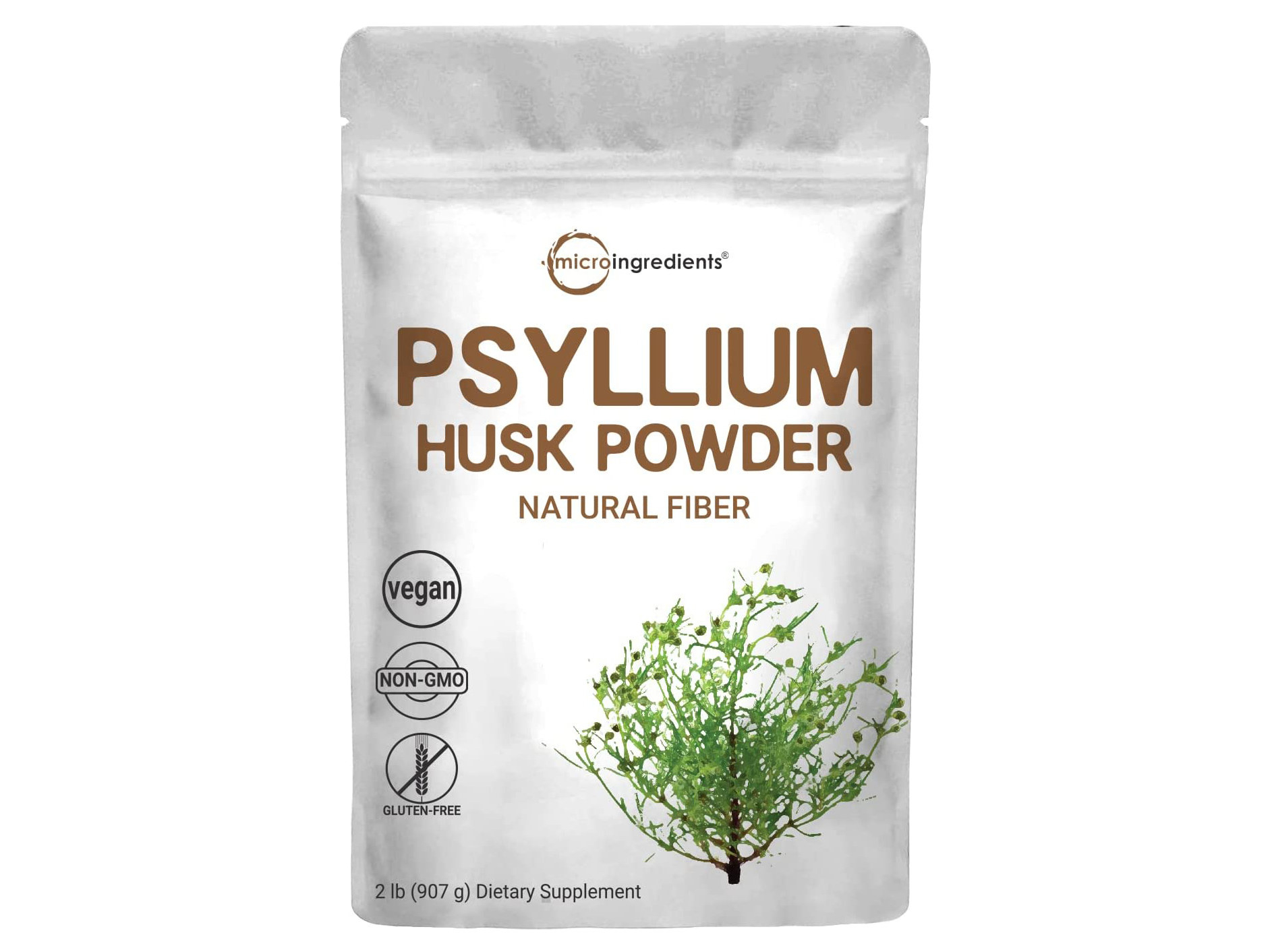
Promising review of Psyllium Husk Powder: “Cured nausea for me! It’s very finely ground which makes it easy to mix and to swallow. Highly recommend if you suffer from any digestive issues.” —Daisy M.
You can buy Psyllium Husk Powder from Amazon for around $23.
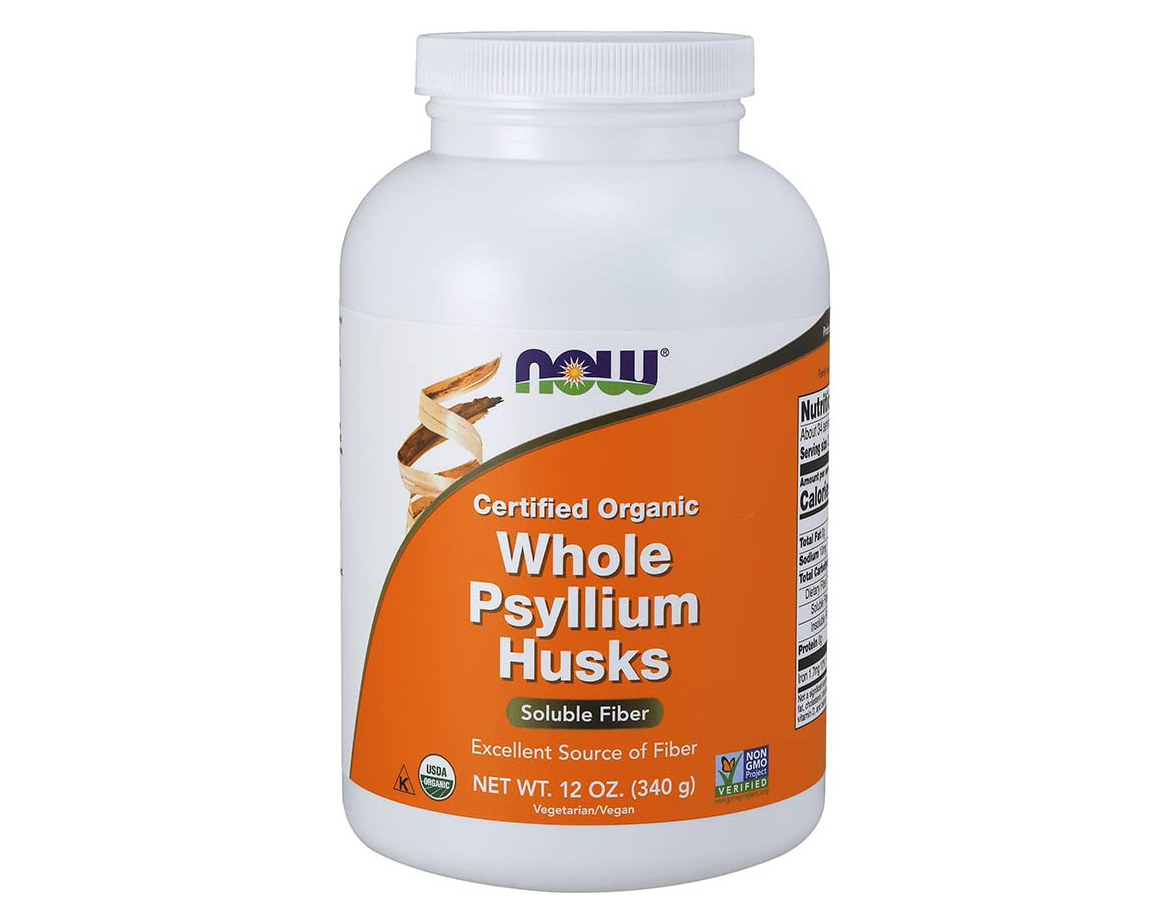
Promising review of Whole Psyllium Husks: “You don’t know what you don’t know. This stuff will change your life - then you’ll know! Hard to imagine adding this to your diet can make a desired difference you didn’t even know you wanted. Keeps you regular, easy, light and free!” —TA199
You can buy Whole Psyllium Husks from Amazon for around $13.
